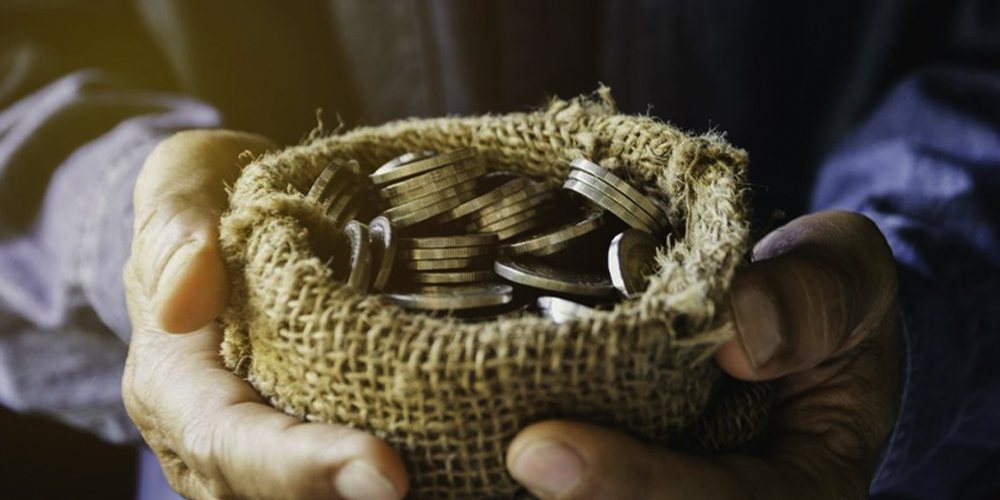 |
 It was just 30 pieces of silver. But that was enough. He betrayed Jesus, a friend who chose him and loved him. The others Jesus also chose elected Judas to take care of their expenses. He had been careful—at least publicly—with the funds.
It was just 30 pieces of silver. But that was enough. He betrayed Jesus, a friend who chose him and loved him. The others Jesus also chose elected Judas to take care of their expenses. He had been careful—at least publicly—with the funds.
Our Lenten seasons since have painted Judas in dark colors. He disappeared into the night and took his own life rather than continuing on with the deep stain of his betrayal. The money that once seemed so important became a worthless and painful reminder of the magnitude of his sin. He threw it at those who bribed him.
What led Judas to betray Jesus? The betrayal is so universally understood that such a question is, at first, easy to answer: money. The lesson we apply to our lives is also simple: Don’t betray Jesus. We easily extend it to a warning not to betray friends or even enemies. We never give the lesson much more thought, but let’s take a step back and think more carefully about it.
Judas allowed a deception to control his thinking. He set aside Jesus for what he thought was more important. That thinking is more common than we realize. It sneaks up on us. Perhaps another way to think about it is that Judas began to see and think his treasure was in the world around him. His priorities did not extend beyond the sunrise and sunset of each day. He saw his life as one episode after another with unending repetition. Nothing more.
Yet he was a disciple of Jesus and heard the way Jesus encouraged his disciples—all of them—to look beyond and adopt different priorities. Even the miracle of bread for the five thousand became the Savior’s challenge to look beyond. Jesus said, “Do not work for food that spoils, but for food that endures to eternal life. . . . I am the bread of life” (John 6:27,35).
Judas allowed a deception to control his thinking. He set aside Jesus for what he thought was more important.
But the temptation of the money bag was too powerful. Judas began helping himself (John 12:6). Greed and guilt came with what he took. Perhaps he hid both—even from himself—behind a facade of concern for the poor. Maybe he ignored the guilt or stuffed it deep down inside. And the greed started small until he wanted 30 pieces of silver more than anything.
In the process, he gave Jesus up. He viewed life as one important quest to get all he could, while he could, and in what-ever way he could. It sounds so familiar, doesn’t it? He ignored his Savior’s warning, “What good is it for someone to gain the whole world, yet forfeit their soul?” (Mark 8:36). His priority became the blindness behind a kiss in the garden.
We can find ourselves there. We live in a world that does not see the importance of Jesus. The overwhelming emphasis of what we watch or read directs us to set our priority on this world—the same emphasis and priority that enticed Judas, a disciple of Jesus. Simply, the world ignores the importance of Jesus, his crucifixion, and his resurrection. Again and again, it invites us to choose a different priority.
Think how easy it is to see family, work, success, and financial security as our first and only priorities. Yes, we may enjoy all this world has to offer. They are God’s gifts to us but not our priorities that lead us to give up Jesus. His suffering and death to remove our sin and guilt and his resurrection are what the apostle Paul suggests are “of first importance” (1 Corinthians 15:3).

Author: John A. Braun
Volume 109, Number 03
Issue: March 2022
- We have love
- We have hope
- The Judas priority
- We have faith
- I come




